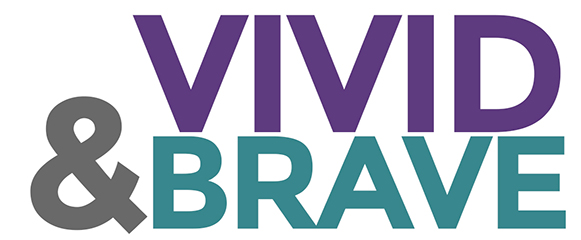
I believe that each person should live their life exactly as they choose. One of my life choices has been to love more than one person and to identify myself as polyamorous. This type of structure, one with multiple people involved in emotional and/or sexual relationships, is a hot topic right now. Even with all the publicity, it’s still considered different and the term for it isn’t recognized by all.
The topic of ethics in relationships is discussed often in poly circles, articles, and podcasts. Ethically non-monogamous people work hard to be open, honest, and to communicate diligently as just a few examples. I would like to share with you a few behaviors that I wish I had known about and applied long before I became poly. All would have been equally beneficial in the monogamous life I lived before. I’ve also included how you may apply them in your relationship(s).
Acceptance is Key
What I’ve learned: I cannot change my partners nor would I want to. They are amazing people. If it weren’t for exactly who they are with all their positive qualities and imperfections, I wouldn’t have fallen in love with them. Attempting to change one of them into what I want takes so much time away from enjoying the person I love and the things I love about them.
What you can do: Accept that you and your partner will always be imperfect. Mistakes will be made. Make a list of the amazing things you love about them and when you have negative feelings about something that they have said or done, refer to your “Why I Love _(Insert your lover’s name here)_” list and remember why you fell for them in the first place.
Appreciation is Key
What I’ve learned: We are surrounded by distractions. It takes concerted effort to put down my phone, focus, and talk with the people I love every day. The importance of giving each other a kiss and hug before we head out for the day or when we return home is one of the things I look forward to most. Enjoying every moment in the company of that one person has become vital for the quality of my relationships.
What you can do: Analyze how often you say I love you to those you care about. Ask yourself how often you show by your actions what they mean to you. If these things are lacking in any way, make a concerted effort to change that. Appreciate the small moments you have with each other by putting down your phone and looking them in the eye and asking how they are. We only have so long with those we care about, so appreciate every single moment.
Communication is Key
What I’ve learned: It is scary to reveal to the one you love about something you need or want that is different from what you are receiving. My fears have kept me quiet in the past, but when I have allowed myself to open up and be completely honest, the conversations have led to open minds and open hearts. They have even led to big changes. These changes may have taken time, but, if I had stayed quiet, they may never have happened at all.
What you can do: Be open and honest with your partner about everything, especially the things that you fear discussing the most. You deserve to speak your mind and those that love you want to know the truth. Tell them what you love, what you don’t, and things you like and don’t like in the bedroom. It may lead to disagreements or hurt feelings at times, but keeping those things quiet can lead to resentment. Resentment hurts you both in the long term.
Trust is Key
What I’ve learned:
The people that I love are genuinely good people. They care about me. They mean well and consider me in their decisions. They have my best interests at heart. There are times when we may disagree or they may act impulsively or say something hurtful. All these things aren’t willfully done to injure me. Trusting that they have good intentions allows me to make positive assumptions rather than coming up with negative conjecture.
What you can do:
You chose your partner for a reason. Trust that they have good intentions. Talk to each other without assumptions about how something makes you feel and work to build trust rather than breaking it down with accusations. If the trust is broken, be honest about it and the feelings that become of it. Make decisions based upon the life you want and never intentionally hurt the person you love, even if they have hurt you.
If the trust has been broken: Trust is vital for a healthy relationship. If you do not or cannot trust your partner, there are problems deeper in your relationship that need to be discussed with a professional. See someone (a family therapist, a religious leader, or an impartial party) to talk about trust issues and what you can do together to get it back. Talking with this person may help you to decide how you want to handle it.
Forgiveness is Key
What I’ve learned: I am not perfect. I am going to do things I regret and say things I wish I could take back. If I do this, my partners will, too. They still love me. Those mistakes are not the defining feature of our relationship. Repeatedly reminding the person who hurt me about the mistakes they have made does not help resolve anything. Being unable to forgive me also works against the process of forgiveness. The choice to forgive is mine and if I choose to forgive, I have to do it freely and let it go.
What you can do: Grudges and silent treatments do not resolve past wrongs. If you cannot forgive a transgression right away, allow yourself time to process. If you choose to forgive, forgive completely. Hanging onto the pain associated with past hurt can negatively affect your heart, your mind, and your health. There are times when forgiveness is justified and right for you and your partner. There are times when forgiveness is not possible. Those choices are up to you and no one else. Whatever you do, do it completely.
Principles of the poly lifestyle are applicable in romantic relationships of all kinds, including the monogamous ones. Being ethical in relationships takes an examination of the way you think and the way you act. It’s important to examine our motives and intentions in order to know where we stand. One source of information that helped me examine my own conceptions on ethical behavior in relationships can be found under Additional Resources.
Additional Resources:
http://www.morethantwo.com/book
Cassie Olerie
Latest posts by Cassie Olerie (see all)
- Skills to Acquire: How To Ideas - September 27, 2015
- Who Will You Write To Today? - September 10, 2015
- Why I’m Not Angry at My Mom or Her Religion - August 30, 2015





All Relationships Benefit from Poly Principles http://t.co/3p7tyeyYuu via @vividandbrave